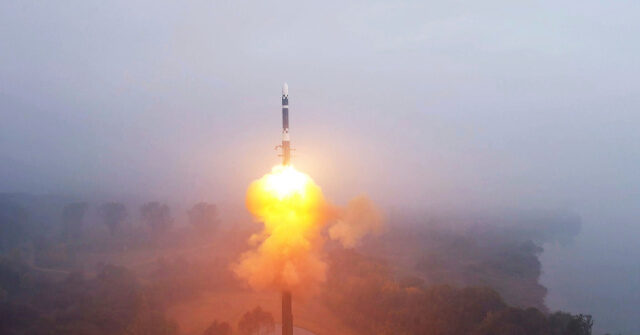On Friday, North Korea confirmed the successful test of a new intercontinental ballistic missile (ICBM) designated as the “Hwasong-19.” This missile was launched on Thursday and is believed to have nuclear capabilities, making it capable of reaching all parts of the continental United States. The Hwasong-19 demonstrated a flight duration of 86 minutes, setting a record for North Korean technology in terms of distance and altitude. Interestingly, the unique shape of the missile’s launch pad diverges from known ICBM prototypes from North Korea, suggesting advancements in their missile technology. The launch was a significant event as it showcased North Korea’s ongoing missile development initiative amidst escalating tensions in the region.
In anticipation of the upcoming American presidential election, both South Korean and Japanese officials have expressed concerns regarding North Korea’s increasingly aggressive stance. Prior to the missile test, officials from both nations predicted that North Korea might execute an ICBM launch or even detonate a nuclear weapon to demonstrate its military prowess and intimidate both the United States and South Korea. This heightened belligerence signifies North Korea’s strategic efforts to project power and influence over regional political dynamics, particularly in times of perceived vulnerability or instability in the U.S.
The testing of the Hwasong-19 coincides with growing North Korean military presence in Europe, particularly through reported troop deployments to Ukraine. Multiple sources, including South Korean, American, and Ukrainian officials, have indicated that North Korea may send up to 12,000 troops to assist Russia in its ongoing military operations in Ukraine. The gravity of this situation has become evident with the emergence of social media footage purportedly showing a captured North Korean soldier, signifying the tangible involvement of North Korean military personnel in foreign conflicts. Such actions further complicate the already intricate geopolitical landscape surrounding North Korea’s military ambitions.
In the aftermath of the missile test, North Korea’s state-run newspaper, Rodong Sinmun, hailed the Hwasong-19 as a “tremendously powerful absolute weapon,” emphasizing its significance to the regime’s nuclear program. North Korean leader Kim Jong-un reportedly expressed immense satisfaction with the launch, asserting that the development of advanced missile technology is irreversible. The publication also reiterated the government’s resolve to enhance its nuclear capabilities in response to perceived threats from the United States and South Korea, highlighting a strategy focused on strengthening national defense as a means of ensuring regional peace and stability.
The North Korean government was prompt in confirming the missile launch, breaking from its typical delay in commentary following such tests. In statements disseminated through the Korean Central News Agency (KCNA), officials articulated that the missile launch was a direct response to escalated tensions with South Korea and the U.S. South Korean military officials corroborated this by describing the Hwasong-19 as the largest long-range missile developed by North Korea to date, characterized by its solid-fuel propulsion and the potential to accommodate multiple nuclear warheads, ensuring a credible threat to adversaries.
Looking forward, both South Korean and Japanese officials have raised the possibility of further provocative actions from North Korea, especially concerning the potential refurbishment of the Punggye-ri Nuclear Test Site, which has been dormant since 2017. This site may serve as a venue for North Korea’s next nuclear test, potentially coinciding with the American presidential election. Amidst this backdrop, officials speculate that North Korea may continue missile launches or conduct additional nuclear tests to reinforce its military capabilities and send a strong message during a period of external scrutiny and political transition in the United States, reaffirming Pyongyang’s emphasis on its military might as a critical component of its security policy.

